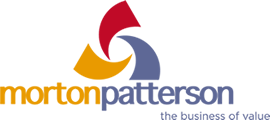A – Attention– Pay attention and listen to the needs and problems of your client’s
B – Budget – Before you sit down to draft a proposal, ensure that you are clear about their budget
C – Confidence – Show confidence by believing in yourself and what you offer
D – Demonstrate – be able to evidence the value of your work through testimonials, case studies and measurable results
E – Experience – and a strong sense of self -belief is a key factor in knowing your value
F- Fees– charge fees based on the value to your client and not what you think they can afford
G – Goals – Set clear goals and agree objectives with your client’s. Break them down into small manageable chunks
H – Hourly pay– being paid by the hour focuses on time spent and not what is being delivered. The attention is in the wrong place and does not serve you or the client
I – identity– be clear on your mission, values and what your business stands for
J – join– work with your prospective client to develop solutions. They are your peer
K – Know Your Value: – believe in yourself and focus on the difference your service makes to your client’s end result
L – listen-listen more than you speak
M – money – money is the exchange for your value – be comfortable asking for it and being paid well
N –Nothing happens unless you ask for the business
O – Options – In your proposal present options of increasing value, as giving only one limits your chances of the client saying yes
P – Packaging – gives potential client’s the choice to choose the service they can afford relative to their budget for greater profit.
Q – Questions –Ask clarification questions, the clearer you are the more you can understand what your client needs. As has been said, the only silly question is the one you never asked
R- Results – clear measurable results are what counts, not your process or how it will be done
S – Sales– develop good selling conversations/sales meetings skills – that move you towards understanding your prospective client needs and closing the sale
T – Testimonial – ask for testimonials. Highlight where your client was before of your intervention, what you did and the difference as a consequence of your intervention.
U – Undercharge – when you don’t know or can’t articulate your value you may undercharge or overcharge. Your negotiations should put you and your client in a win: win situation
V – Value – is the difference your product or service makes
W – Wild goose chase – is when a prospective client says, ‘send me a proposal’ and you have no idea of their requirements, risks, budget or the difference your intervention will make
X – Xceed expectations – keep promises, go the extra mile. Respond to emails quickly, a, over deliver and under promise
Y – You and what makes you different – is it your expertise, track record? Do you know?
Z – Zig-zag – Zag when all of your competitors are zigging. Be creative and look at what gives you a competitive advantage – is it how you use technology to deliver your service, or your level of customer service?
